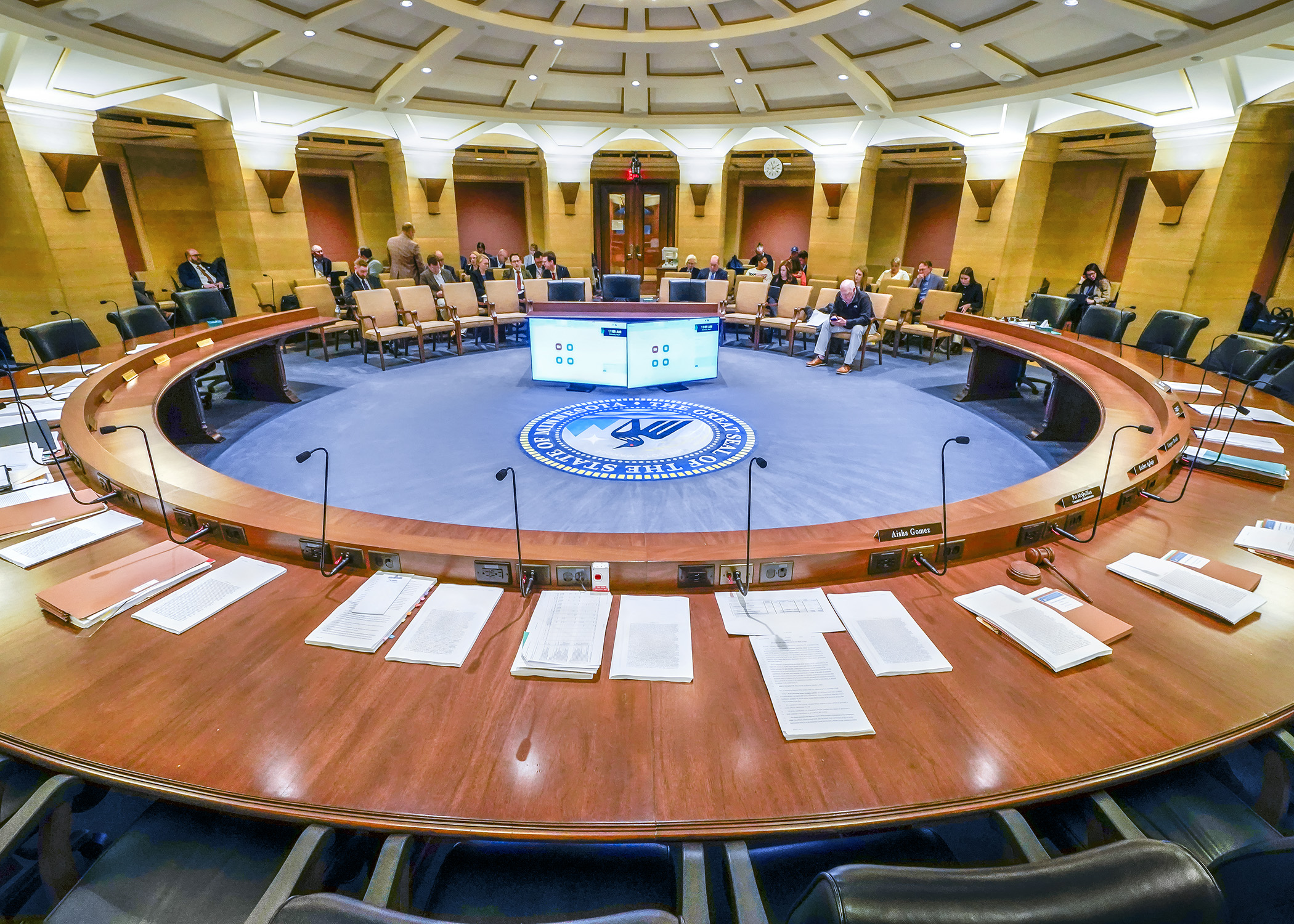Tax working group the first to make public preparations for a special session

Let’s start with the revenue, shall we?
While that might not have been the suggestion that jumpstarted the process of crafting a 2025 Minnesota tax bill, the Legislature’s first public post-session discussions on a new budget have started with a taxes working group, which met both Tuesday and Wednesday afternoons.
Consisting of five senators and four representatives, the group’s charge is to find common ground and compromises between the proposals that came out of their respective taxes committees, each since revised to meet the budget targets handed down from leadership last Thursday morning.
“These decisions will be made in public,” said Sen. Ann Rest (DFL-New Hope), who chaired the first meeting. “We have been directed by our leaders to function as if we are a conference committee.”
But not all information the working group is employing is public, as evidenced by a Tuesday disagreement about what policy provisions are part of the agreement between Gov. Tim Walz and legislative leaders.
For example, there’s a provision in both bills that would require data centers to pay taxes on electricity, a tax from which they’re currently exempt. But is that contingent upon an extension until 2062 of those companies being able to purchase equipment and software tax-free?
Rest said it was, while Rep. Aisha Gomez (DFL-Mpls) said House negotiators had not been given that directive and assumed leadership was silent on the subject.
“That was my understanding too, until they read something to me that they didn’t sign or release publicly,” Rest said, adding that nonpartisan Senate fiscal staff confirmed that it was a condition of the agreement to not repeal the electricity exemption without extending the other exemptions.
At its initial meeting, each side brought spreadsheets to the table and Senate members concluded the day by making an offer of what they would like the House to accept in their bill. On Wednesday, the House countered with an offer of its own.
[MORE: View the House and Senate spreadsheets.]
One particular difference between the bills raised the temperature at Tuesday’s meeting: The Senate bill includes language that would reduce both local government aid and county program aid by $15 million each in fiscal year 2027 and each ensuing year through fiscal year 2029. The House bill would not reduce those local aids.
“The cuts in aid are what the agreement demanded of us,” Rest said. “I wish the aid cuts were not a fact of life.”
But Gomez challenged that contention.
“Property taxes will go up,” she said. “Aid cuts are a choice, not a fact of life. I’m really distressed to see that choice reflected in this bill.”
Taxes that would go up under either bill include the cannabis gross receipts tax, which would be slated to increase from 10% to a rate of 15% under either bill. Both bills would also repeal the dedication of 20% of the cannabis gross receipts tax for local aid. Together, those changes would be projected to add somewhere between $74 million and $77 million to the state’s coffers in the next biennium.
Over the same period, the Senate bill would cut $12.8 million more than the House in corporate franchise taxes, largely by changes to the research and development credit that include a new refundable rate of 23.52%.
That’s one of several differences between the two bills in their current form, which hold disparate bottom lines on their spreadsheets. According to nonpartisan staff, the House bill would meet the budget target of a $118 million net reduction in the General Fund, while the Senate bill’s total would come out to $107.89 million.
Related Articles
Search Session Daily
Advanced Search OptionsPriority Dailies
Stable budget outlook projects $3.7 billion surplus now, no deficit in next biennium
By Lisa Kaczke The projected surplus for Fiscal Years 2026-27 is now higher than it was in the November estimate, and no deficit is projected for the next biennium.
“Minnesota’s budge...
The projected surplus for Fiscal Years 2026-27 is now higher than it was in the November estimate, and no deficit is projected for the next biennium.
“Minnesota’s budge...
Legislative leaders set 2026 committee deadlines
By Lisa Kaczke Legislative leaders on Tuesday officially set the timeline for getting bills through the committee process during the upcoming 2026 session.
Here are the three deadlines for...
Legislative leaders on Tuesday officially set the timeline for getting bills through the committee process during the upcoming 2026 session.
Here are the three deadlines for...